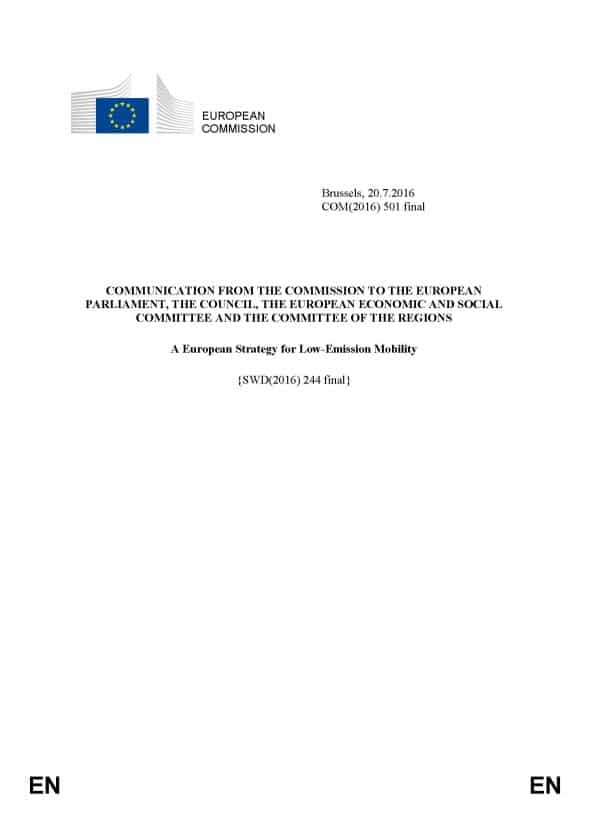European Commission shows ambition for low-emission transport, electro-mobility is part of the solution
EDSO for Smart Grids welcomes today’s publication of the ‘European Strategy for Low-Emission Mobility’ by the European Commission as an opportunity to refocus attention on electro-mobility as an obvious solution for making Europe’s transport clean, more efficient and less dependent on imported fossil fuels.
‘The communication shows a step-up of ambition on low-emission mobility, and it is clear that electro-mobility will play a critical role,’ says Ana Aguado, Secretary General of EDSO. ‘‘Distribution system operators’ electricity networks are crucial facilitators of Europe’s transition towards low-carbon transport. This includes the smart integration of both the charging infrastructure for electric vehicles (EVs), as well as of renewables into Europe’s electricity grids.”
EDSO supports the recognition given to electricity grids in today’s communication as a step in the right direction. Whereas the additional demand from EVs is feasible in terms of total energy demand, they can pose serious challenges for distribution grids in terms of capacity used, causing potential electricity peaks and voltage issues. This can happen, for example, when cars charge simultaneously in the same area, during a short period of time or with other electricity loads.
On the other hand, EVs could also support the grid as flexible demand and distributed energy storage. Given the available storage capacity in the cars’ batteries, and the fact that cars are parked for most of their lifetime, EVs can offer an attractive flexibility solution for load management. If used smartly, electric vehicles could charge when demand is low and prices are cheap, or even at times of high renewable electricity supply. In the long term, and if economically possible, they may even provide electricity back to the grid when electricity demand is high.
Indeed, EVs represent a highly versatile, interconnected technology that can offer new opportunities by linking electricity networks with the transport system in the future. EDSO welcomes the European Commission’s plans to include the integration of electro-mobility in the forthcoming electricity market design proposal, and hopes to see a prominent role given to smart charging.
The Commission also gives a reassuring signal in promoting measures for the installation of recharging points in public buildings. This can serve to address the need for fostering successful business models for public charging infrastructure as a way to accelerate the EV market in Europe. Efforts need to be centred on developing smart charging solutions that have a minimal impact on reliability and availability of the current energy system and boost the aspirations of the EV drivers.
In line with today’s communication, the development of electro-mobility is highly dependent on the introduction of new vehicles, battery development as well as customers’ engagement. This can be heightened through a range of policies including public procurement, tax instruments or CO2 efficiency standards for vehicles.







